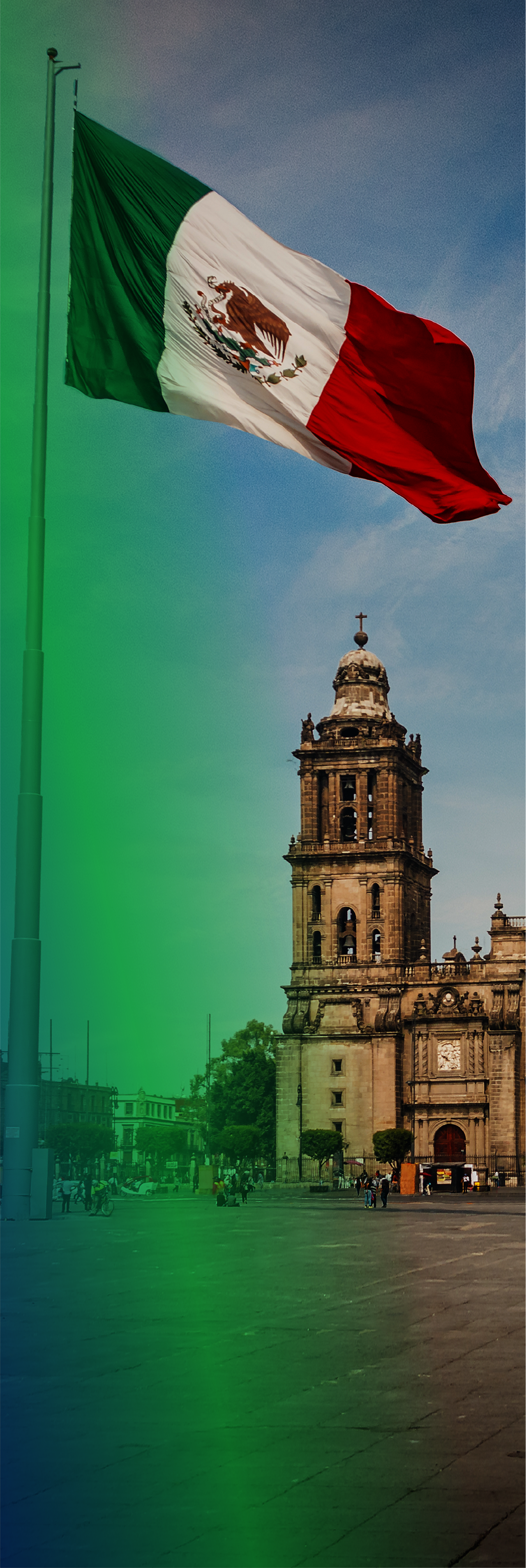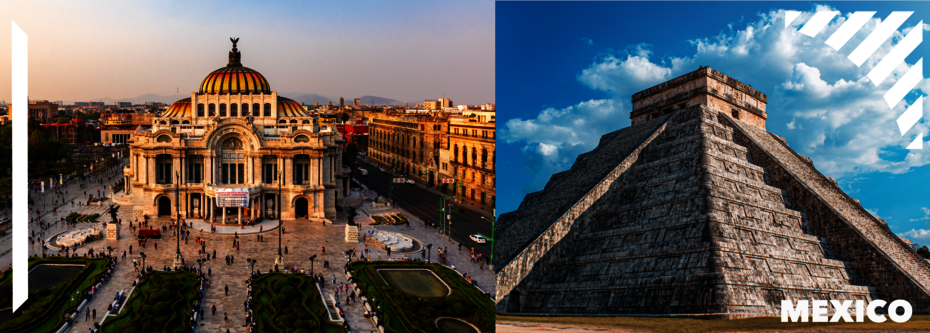Mexico has been a non-regional CABEI member since 1992 with an authorized stake of USD306.25 million in the Bank's share capital and capital contributions of USD76.56 million, ranking as the third largest shareholder within the group of non-regional members with 5.03%.
The contribution that Mexico channels to the Central American region through CABEI is based on various financial cooperation instruments with Banco Nacional de Comercio Exterior S.N.C. (Bancomext) for a total amount of USD520.8 million. The relationship between the Bank and this country was solidified in 2008 with the launching of the Central American Social Housing Development Program. It falls under the framework of the Mesoamerican Integration and Development Project (formerly Plan Puebla Panamá). Since that date, the Mexican government has made resources available to develop a sustainable market for long-term housing finance in the Central American region that addresses the housing deficit and future needs in this area. Throughout the Program's existence, 59 disbursements have been made through 14 intermediary institutions. In total, 192.7% of the initial financing available has been channeled, benefiting a total of 8,032 low- income households, which can now enjoy a more dignified home.
CABEI promotes sustainable development in the region

Projects seek climate change mitigation.
TEGUCIGALPA, June 5, 2017 (AFP SERVICES/CABEI).- The Central American Bank for Economic Integration (CABEI) 2015- 2019 Institutional Strategy “Integrating Sustainable Development and Competitiveness" focuses on the importance of pursuing environmental sustainability and reducing vulnerability to natural disasters associated with climate change, as key efforts for ensuring the region’s social development, competitiveness and integration.
In this sense, CABEI has established a cross-cutting axis of environmental sustainability in all of its operations. This is reflected in approvals made amounting to more than US$8 billion and disbursements for more than US$7 billion, which promoted the region’s sustainable development during the 2012-2016 five-year period.
CABEI has expressed its commitment to support its member countries in achieving the goals established at the 21st Conference of the Parties on Climate Change (COP21), as a fundamental step towards mitigating the effects of climate change. In addition, the Bank seeks to invest in a low carbon, resilient and sustainable future. Furthermore, it is estimated that 67% of approvals made during the previous strategic period (2010-2014) incorporated climate change adaptation and mitigation measures.
The CABEI Institutional Strategy sets out six focus areas, including the area of Rural Development and the Environment. Through this focus area, CABEI continues to direct actions related to agricultural, forestry, aquaculture and livestock activities in order to achieve agricultural and rural development for every member country under a framework of sustainable natural resource and environmental management.
With regard to Costa Rica, CABEI provided US$48 million for the construction, equipment and startup of the Regional Wholesale Market in the Chorotega Region, which consists of an efficient and modern agri-food product supply, distribution and commercialization system.
With respect to Nicaragua, US$10 million has been allocated for the execution of the Program for the Promotion of Sustainable Agricultural Productivity (PFPAS) in order to promote research, dissemination and technology transfer with a focus on climate change.
In Honduras, through a strategic alliance with the International Fund for Agricultural Development (IFAD) and the OPEC Fund, CABEI has co-financed the Program for the Sustainable Development of the Southern Region (EMPRENDESUR) with US$10 million for the execution of agricultural production, tourism and archeological projects that contribute to raising the levels of income and employment and to promoting the improvement of the beneficiaries’ living conditions.
In El Salvador, CABEI provided an additional US$60 million for a total amount of US216 million for the Family Agriculture and Rural Entrepreneurship Plan for Food and Nutritional Security to attend families that carry out agricultural, forestry, productive, fishery and aquaculture activities; the plan contributes to food and nutritional security in the beneficiary territories.
As part of its sustainable development initiatives in support of the region’s countries, the Bank also implements noteworthy regional programs, such as the Regional Pilot Program to support populations affected by coffee pests and the promotion of sustainable practices in support of coffee production. The program has available funds amounting to US$86.0 million to promote renovation and maintenance activities for small and medium-scale coffee farms and aims to benefit approximately 20,600 producers through access to financing and technical assistance services.
As the region’s strategic ally, CABEI seeks to promote sustainable initiatives, including actions to adapt and mitigate climate change through the generation and implementation of financial and non-financial mechanisms that facilitate the adoption of best practices established by the international community.










